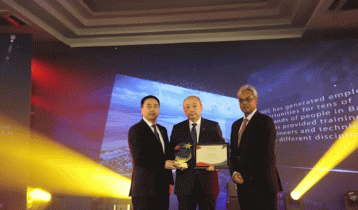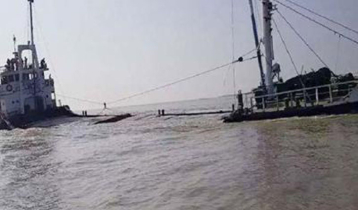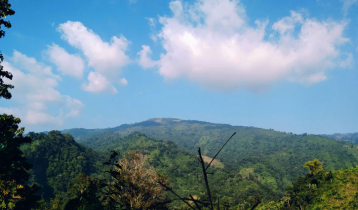Shipping the Ship: Shangha Mitra Datta
News Desk || risingbd.com

Shipbreaking refers to breaking down ships that are used for a minimum of 25 to 30 years. It helps to gain true raw materials or other parts of a ship for reuse or recycle.
Bangladesh has the second-largest shipbreaking yard in the world located at the Chattogram covering about 38 km area. In 2019, it went to the top by dismantling about 47.2% of the total ships, dismantled around the world.
Although it supports the national economy a lot, its impact on the environment is out of the question. Calculating the environmental damage cost, it will be more than the yearly earnings. When a ship is dismantled, steel designed with color paints containing toxic chemicals is what is found mostly. Besides, there are other hazardous wastes, asbestos, oil that get released too.
However, before breaking down ships there is no other safety measure and the ships are illegally dismantled on the open beach. 81 yards among 150 have Department of Environment permitted licenses. The year-to-year death ratio is increasing due to explosion or exposure to toxicities.
According to the Bangladesh Ship Recycling Act 2018, ships must be dismantled in the government permitted zone and nowhere else, must maintain proper waste management, and insurance must be provided to the working force. A fine of 10 lakhs to 30 lakhs will be given as punishment for violating the law. This act follows several guiding principles. Talking about the principle of beneficence, no harm, no interference, it supports the good of others and doesn’t support any harm to environmental elements. It tries to put a barrier to humankind to interfere with the environmental entities so that biodiversity remains independent about their basic needs. When it comes to the principle of loyalty and sustainability, the policy ensures no restriction against biotic things. In this way, the policy directly or indirectly sustains biodiversity degradation and the economic value of it shall uprise. This act also follows the principle of precautionary, effectiveness and efficiency, responsibility, and proportionality. It was made to minimize the wasteful use of resources so that every resource is used efficiently. To do so, the principle of precautionary plays an important role by providing NOC to licensed companies, selecting a certain zone for breaking ships, and providing life insurance to the workforce. The state, being responsible enough, investigated several yards and fined them based on their illegal activities. The government tried to balance economic and environmental sustainability. The waste management should be under control and is a must rule for every ship breaking company. The authority determines a specific zone to break ships so that the waste management remains proper and less harm happens to the environment. Though Chattogram Ship Breaking Yard was anthropocentric, Bangladesh Ship Recycling Act 2018 made it eccentric, so that living organisms remain equal to the ecology.
The act was implemented very effectively, but some gaps need to be filled up. More people should be appointed for proper monitoring at the yard to close down bribery and illegal activities. The user-pays principle can be a good solution to force the industrialists to pollute less. Licenses should be rechecked to remove ship breaking companies with unethical practices.
Chattogram ship-breaking yard remains in the top three list every year for its huge amount of dismantling. Despite it, environmental degradation is unbearable. Biodiversity gets wrecked by the toxic ocean water, polluted air with mixed chemicals, and different explosions. For this stressed-out situation, only human beings are responsible and they are neither getting concerned nor assuaging the destruction. Once the destruction gets bigger, it will move forward to be the biggest.
(The writer is a student of North South University, Department of Environmental Science and Management)
Dhaka/Shangha Mitra Datta/Nasim



































